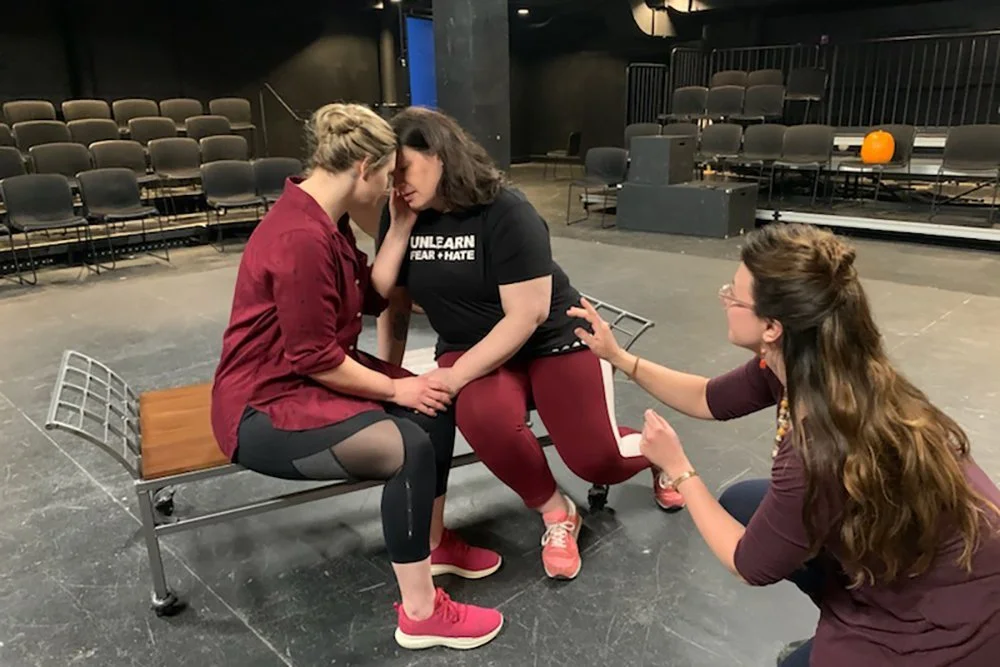A Field Guide to Working with Intimacy Professionals
Alexis Black working with student actors on an intimate moment during the MSU Department of Theatre production of “Bonnets: How Ladies of Good Breeding Are Induced to Murder”
by Chris Peterson
I saw a TikTok recently that said directors should never act as the intimacy professional for their own production, and I couldn't agree more. It might seem efficient or even “collaborative” to just handle it yourself, but let’s be real: it’s not. It’s inappropriate, it creates a conflict of interest, and more importantly, it puts your actors in a deeply uncomfortable position where they may feel they have no choice but to say yes when they actually want to say, “I need a boundary here.”
Directors, your job is to create a vision. An intimacy professional’s job is to protect the humans helping you achieve that vision. You are not interchangeable.
If your production includes any kind of physical intimacy, whether it’s a full-on makeout or just hand-holding with romantic context, bring in a trained intimacy professional. Don’t shrug it off because you think it’s “just community theatre” or “just a student film.” That’s actually when it matters most. Often, these are the projects where actors are unpaid, under-rehearsed, or just starting out. They deserve the same safety protocols as anyone else.
When you do bring one in, collaborate with them the same way you would with your lighting designer or choreographer. Set the tone early in rehearsal: you respect the process, you support the actors, and you trust the intimacy professional’s guidance. Then this part is important, back that up with action. If an actor says something feels off, don’t get defensive. Don’t try to solve it alone. Loop in the IC and listen.
You might think you're creating a comfortable environment just by being “open” or “cool” about intimacy, but openness without training can actually be risky. Just because you're supportive doesn't mean you're qualified. If you’re not trauma-informed, if you don’t have specific techniques for consent choreography, if you haven’t been trained in the language of boundaries, you’re not an intimacy professional. You’re a well-meaning risk.
And let’s be honest: theatre already asks people to be so vulnerable. We scream, we cry, we bare our souls, sometimes our bodies. So the very least we can do is make sure the room is safe while we do it.
Some of the best ICs I’ve seen are able to build trust so fast that what seemed awkward on the page suddenly feels grounded and honest onstage. They don’t just manage logistics, they empower people. They foster creativity by making sure no one is afraid of being pushed past their comfort zone. When people feel safe, they take bigger emotional risks. And isn’t that what we want?
Also, let’s acknowledge that ICs don’t just protect actors from bad directors, they also protect you, the director, from unintentionally causing harm. Even if your intentions are gold-plated and framed in lavender, there’s always room for blind spots. Having a trained third party in the room helps prevent regret, misunderstanding, and very real emotional injury.
So directors: hire the intimacy professional. Respect them. Learn from them. And let them do the work you’re not trained to do. That’s not weakness, it’s leadership.
